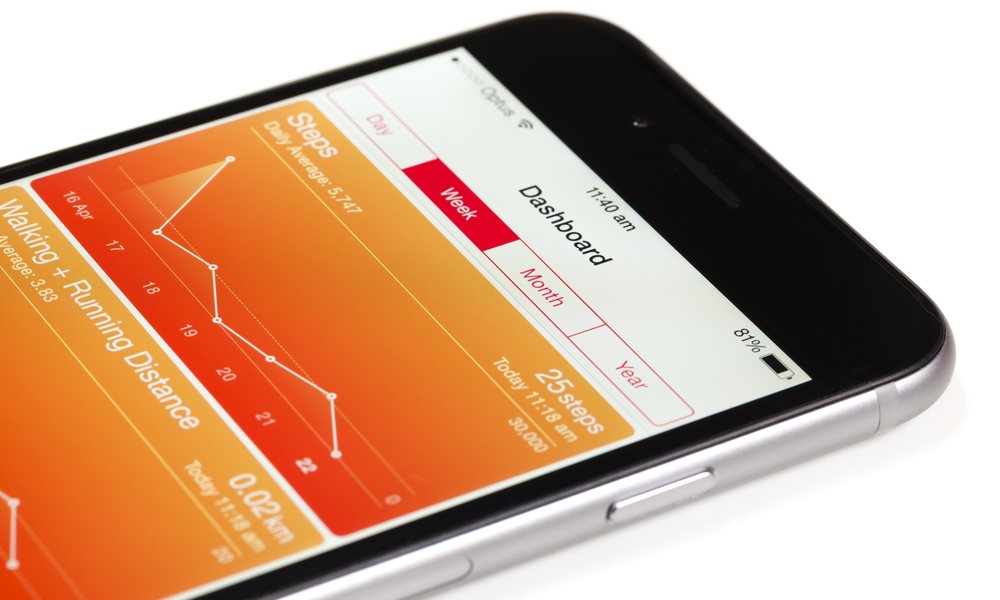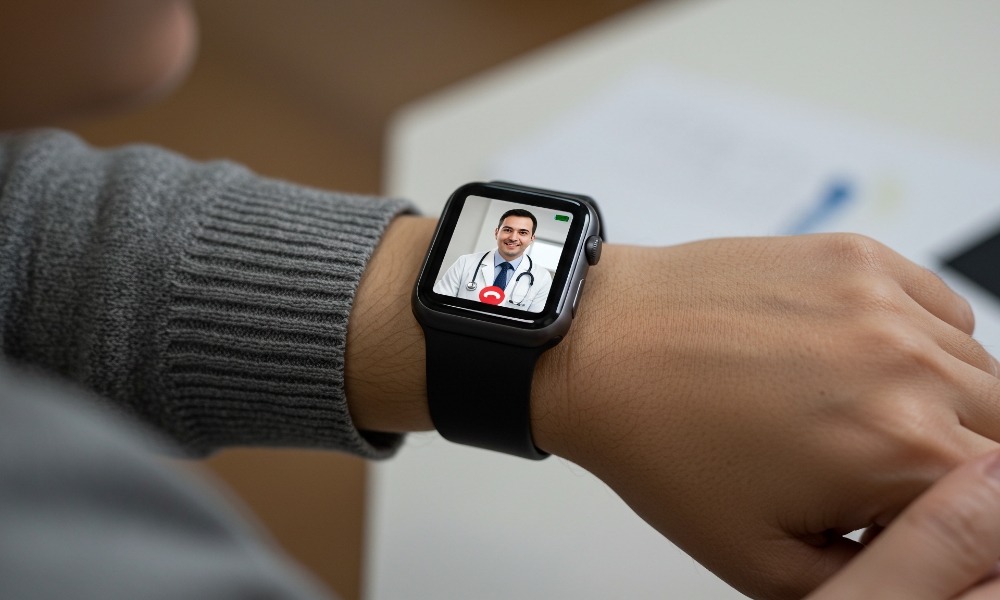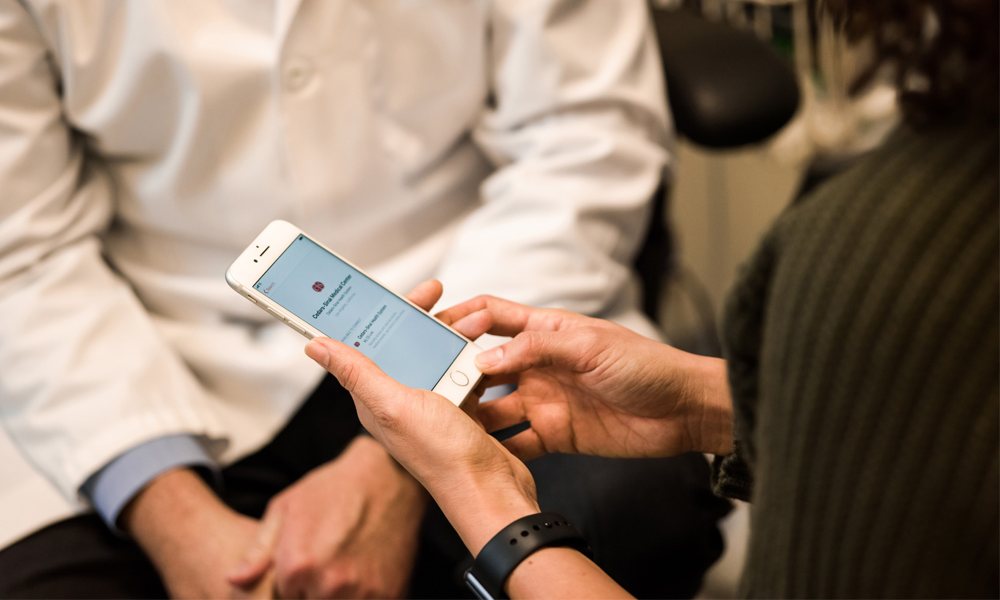Apple Signs onto White House Digital Healthcare Plan
 Ymgerman / Shutterstock
Ymgerman / Shutterstock
Toggle Dark Mode
Even as iPhone prices could potentially rise from tariffs and other trade complications, it seems that not everything coming out of the White House spells doom and gloom for Apple fans. Today, the Trump administration announced a new initiative that will “Make Health Tech Great Again,” by empowering tech companies to create a more integrated and holistic digital health care experience.
According to the press release, over 60 companies have committed to working together to build a “next-generation digital health ecosystem that will improve patient outcomes, reduce provider burden, and drive value.” Apple will naturally play a significant role here, but Amazon, Anthropic, Google, and OpenAI are also at the table.
“For decades, bureaucrats and entrenched interests buried health data and blocked patients from taking control of their health,” said HHS Secretary Robert F. Kennedy, Jr. “That ends today. We’re tearing down digital walls, returning power to patients, and rebuilding a health system that serves the people. This is how we begin to Make America Healthy Again.”
‘Kill the Clipboard’
Some aspects of this new initiative build on work Apple has been doing for years, such as opening up digital access to patient medical records directly from the iPhone Health app, providing a streamlined way to get a consolidated view of lab results, medications, procedures, and more from participating health care providers. In many ways, Apple got there first, and the HealthKit platform is a real-world implementation of what the White House is now championing for the entire digital healthcare ecosystem.
Still, even though Apple’s feature is built on an open Fast Healthcare Interoperability Resource (FHIR) standard for electronic health records, regulations like HIPAA and other privacy concerns from health providers sometimes make it an uphill battle to get everyone on board.
With today’s announcement, the Center for Medicare and Medicaid Services (CMS) plans a more formalized “interoperability framework” for this information, which will not only help overcome some of this resistance but also make it securely available to more technology partners.
At the White House event, CMS unveiled voluntary criteria for trusted, patient-centered and practical data exchange that will be accessible for all network types—health information networks and exchanges, Electronic Health Records (EHR), and tech platforms.
One of the ultimate goals is to eliminate paperwork across the entire system. For example, traditional intake forms could be phased out in favor of a system like Apple Health Records, which already lets a user securely share health information like allergies, medications, conditions, and procedures with a health care provider. Creating an official system for handling this would eliminate the need to manually fill out redundant forms, or “kill the clipboard,” as the CMS press release puts it. Imagine going into a new health care provider and being able to give them everything they need to know (and only what they need to know) at the push of a button.
CMS has shared a list of all the participating companies across six categories, including three for patient-facing apps. Apple is currently only listed in the “Kill the Clipboard” section for the handling of electronic health care records, alongside Google, Samsung, and others. The section includes the following company pledge:
We pledge to empower patients to retrieve their health records from CMS Aligned Networks or personal health record apps and share them with providers via QR codes or Smart Health Cards/Links using FHIR bundles. When possible, we will return visit records to patients in the same format. We commit to seamless, secure data exchange—eliminating the need for patients to repeatedly recall and write out their medical history. We are committed to “kill the clipboard,” one encounter at a time.
An AI Medical Assistant

Another significant aspect of this new collaboration is one that Apple has reportedly been researching for some time. Over the past few months, we’ve heard that Apple is working on an “AI Doctor” as an expanded health coaching service. While that’s still not expected to arrive before 2026, and it’s not entirely clear what the final result will look like, today’s CMS announcement could pave the way to make such a tool officially acceptable.
Companies like Anthropic and OpenAI are involved because one of the prongs of the new CMS data sharing criteria is to empower “conversational AI assistants.” These could do everything from scheduling appointments to helping patients check symptoms.
No one should trust ChatGPT or other bots with their health records in their current form, as there’s no expectation of privacy. However, it’s not hard to imagine a scenario where you would be able to securely share your medical records with a properly vetted and certified AI chatbot to at least help steer you in the right direction for finding an appropriate care provider. Such an AI assistant would need both extremely tight security and privacy protections as well as guardrails to keep it from trying to dispense actual medical advice.
For context, the pledge for companies participating in building conversational AI assistants, which includes Anthropic, OpenAI, Google, Microsoft, Oura, and 14 more specialized health care firms, reads:
We pledge to build conversational AI assistants that connect to CMS Aligned Networks or personal health record apps, and with patient consent, securely access relevant health information and use this information to deliver personalized, helpful support. Our tools will clearly distinguish educational content from clinical guidance, assist patients directly when appropriate and guide them to care from a health professional when needed.
CMS has also published an introductory video from Amy Gleason, Strategic Advisor to HHS and CMS and Acting US DOGE Administrator, explaining the new initiative and plans to add an app library to Medicare.gov to “highlight trusted, personalized digital health tools focused on prevention, chronic disease management, and cost-effective care navigation.”








